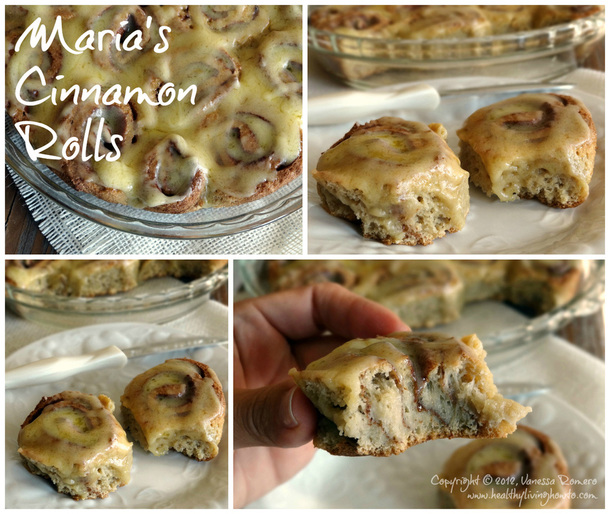Who wouldn't want to wake up on a Sunday morning to the smell of homemade cinnamon rolls baking in the oven?
For this healthy low-carb, gluten-free, sugar-free recipe, you'll have to check out my friend Maria's Nutritious and Delicious Journal (<–click for recipe)
She created this beautiful masterpiece! I followed her directions for cinnamon rolls, using coconut flour, then topped them with browned butter frosting. In place of the Swerve, I used 3/4 c. Smart Sweet Non-GMO Erythritol Granules and 1/2 tsp. NuNaturals Pure White Stevia Extract Powder.
Maria's secret ingredient in this recipe is Psyllium Husk Powder — and there seems to be some confusion on this fiber…
Q & A: PSYLLIUM
I've had a few questions here and on the Healthy Living How To Facebook Page about psyllium. What is it? Where do you get it? Is it healthy? Instead of leaving the answers buried in the comments, I thought I'd put my answers to these questions in this post.
What is it?
Psyllium is derived from the plant Plantago ovata. Psyllium is a plant fiber, with a mixture of various polysaccharides. Psyllium seed husk preparations generally consist of soluble fiber. Psyllium has the highest level of soluble dietary fiber of any plant source.
Is it healthy?
Soluble fiber is fermented by gut bacteria resulting in the production of butyric acid. The cells which line our intestines, colonocytes, use butyric acid as a healthy energy source. In fact, the cells will actually begin to fail when starved of butyric acid. This is important, as there is a direct link between the health and integrity of our gut and our immune system.Psyllium seed husk powder then can be said to serve as a beneficial prebiotic; food that stimulates the activity of healthy bacteria growth in the digestive system.
Prebiotics are something many don't get enough of, especially those of us living a low-carb lifestyle. This is discussed at length in the book, Beyond Antibiotics. The author, Michael Schmidt, PhD, states, “when healthy gut bacteria are starved of carbohydrates, they do not produce enough butyrate to keep colon cells healthy. While the rationale for reducing carbohydrates is sound, it is important that carbohydrate in the form of soluble fiber not be reduced.” Chris Kresser also addresses the need for soluble fiber on a low-carb diet in his article Myths and Truths About Fiber.
